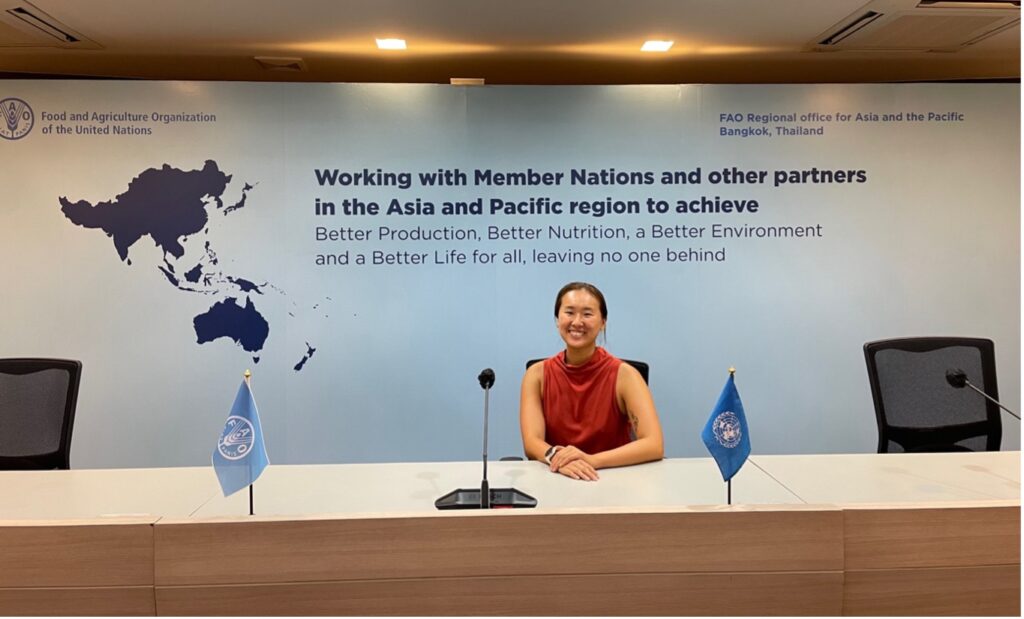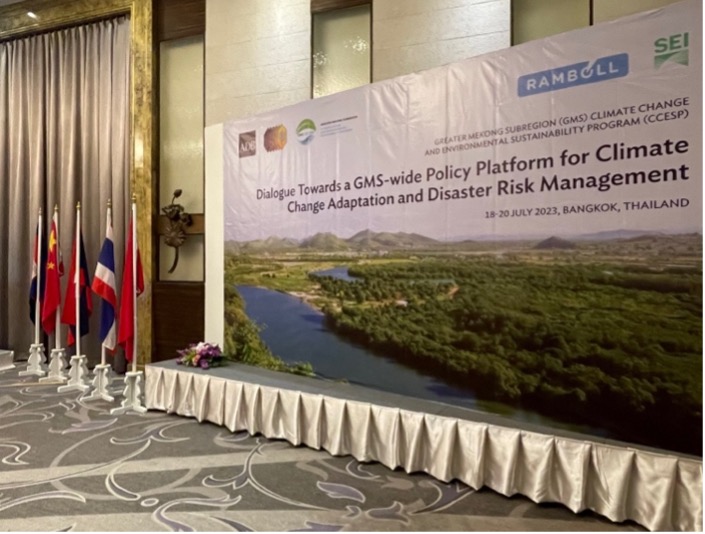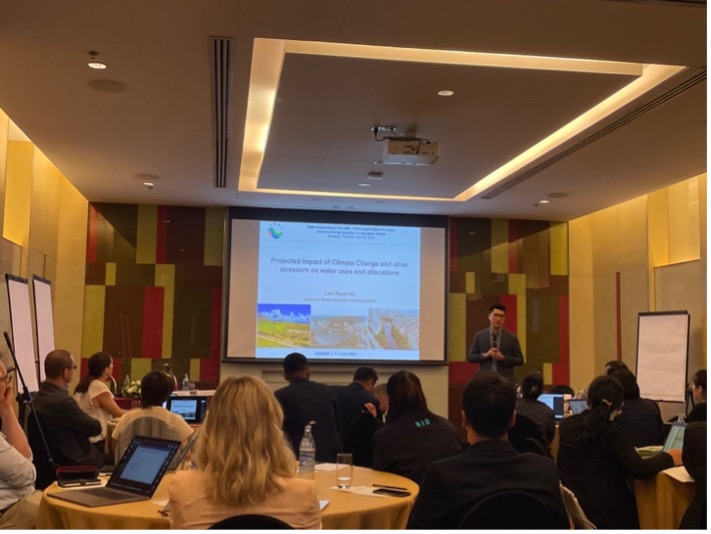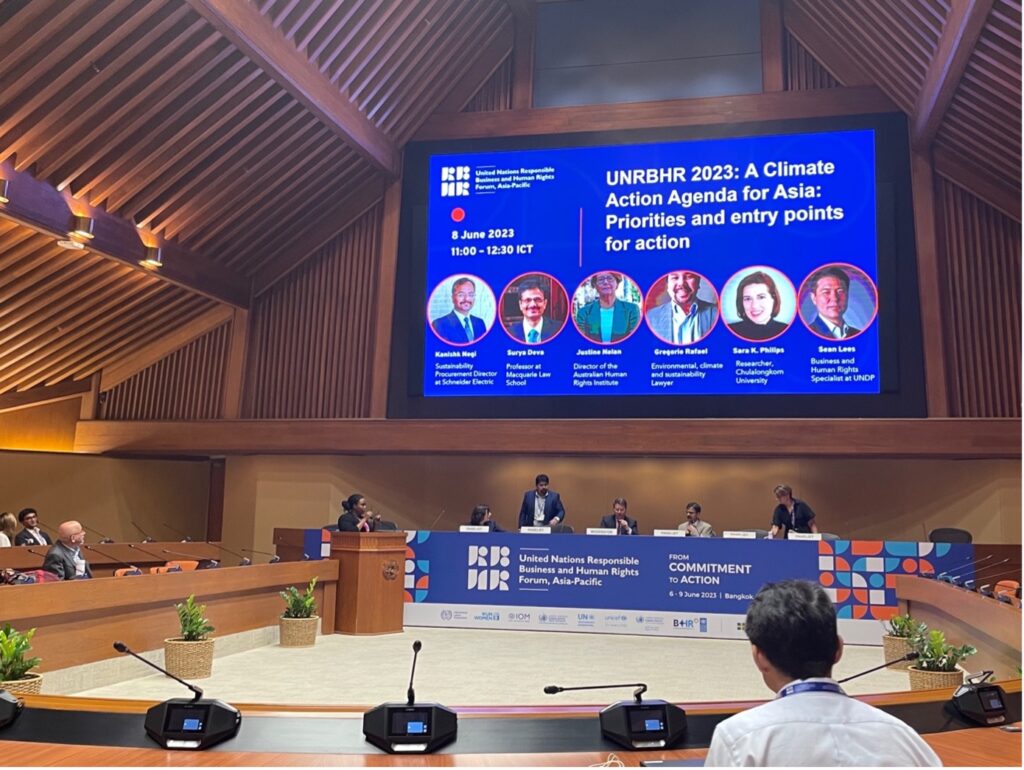Hey everyone!
My time in Bangkok with the Water Program team at the Food and Agriculture Organization Regional Office for Asia and the Pacific (FAORAP) is finally coming to an end. While my practicum officially wraps up on August 11, I am confident that I’ll take the skills, lessons, and knowledge that I’ve gained here with me for the rest of my career.

This summer was certainly a busy one. I wrote 1 Letter of Intent to collaborate between UNICEF and FAORAP on strengthening cooperation between agricultural and water for sanitation and hygiene (WASH) sectors across the Asia and Pacific region, 3 Concept Notes on land-based sources of ocean pollution causing eutrophication in large marine ecosystems (LMEs) in China, Indonesia, and Sri Lanka, 1 policy brief on gender equality, disability and social inclusion (GEDSI) in water resources management, 1 mission brief on non-profits working in the agricultural and WASH sectors in Timor-Leste, 1 speech for World Food Day’s guest speaker, Princess Maha Chakri Sirindhorn of Thailand, and 3 partner contracts for the Water Scarcity Program (WSP). I also had the opportunity to attend 2 workshops hosted by the Asian Development Bank (ADB) and its partners, including FAORAP. Both workshops focused on water, but the one co-hosted between ADB and FAORAP was specifically on water scarcity and how to manage it from a policy level. Participating delegations came from various ministries (Water, Natural Resources, Meteorology, etc.) in Lao People’s Democratic Republic (Lao PDR), Vietnam, Cambodia, and Thailand. During the workshop, I took notes on the presentations from FAO technical experts and other guest speakers, and I had the opportunity to participate in and take notes for the breakout discussions of the Lao PDR delegation. I learned a lot about water-related issues in Lao PDR and how many of them stem not only from prolonged drought, but from poor collaboration between water-using ministries, which leads to overuse and competition. This has dangerous consequences for crop yield and by result, people’s nutrition, as many people living in Lao PDR depend on agriculture for their personal use and for their livelihoods: about 61% of people in the country live in rural areas and depend on agriculture for survival (IFAD, n.d.).


Lao PDR’s main issue with water and agriculture is very similar to that of other Southeast Asian countries – rapid urbanization and population growth is putting pressure on dwindling water sources all while agricultural sectors must produce more food with less water to feed more people. This challenge will shape how countries develop agricultural and nutrition policy, and I recently learned that FAO also has a team that focuses on advising member countries on producing nutrition-sensitive crops. One root cause of many nutrition-related diseases, if you go back far enough, is decreased agricultural yield from water scarcity. While at first glance, the Water Program at FAORAP seems disconnected from public health, but its goal and mandate under FAO is to support better production, better nutrition, a better environment, and a better life for all.

Saying goodbye to Bangkok will be difficult, to say the least. I learned so much about the UN system here and got to meet so many like-minded interns from around the world. I ate the most delicious food every day, worked with incredibly passionate and determined people, learned a lot about Thai culture, and even had the opportunity to visit Tonle Sap Lake in Cambodia, which I researched for my assignments in SPHG 721! My perspectives on international, systems-level work were immensely shaped by my practicum experience, and getting to actually experience the funding mechanisms, agenda setting, and program development we read about in Gillings was invaluable to say the least. Living in Bangkok, a city where my own grandmother was born and lived in until she was 13, really had me feeling สบาย สบาย/sabai sabai this summer, and I feel extremely lucky to have had the opportunity of a lifetime to work in these spaces.
ขอบคุณค่ะ/kop khun ka, Thailand. It’s been a time and hopefully I’ll see you again soon.
~Leeann
